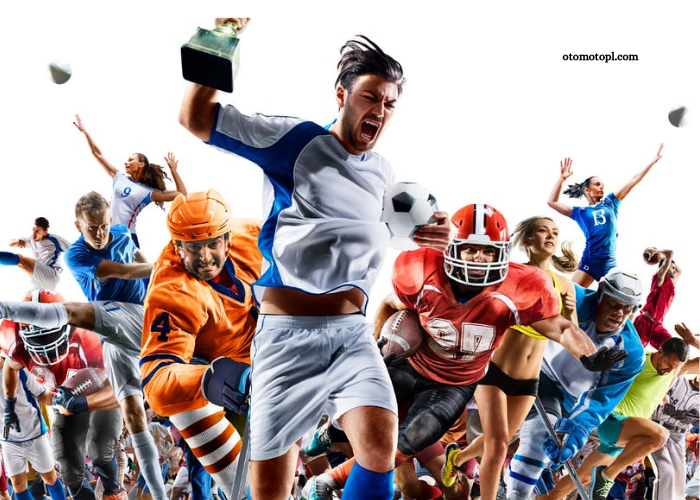Sports unleashed are a ubiquitous part of human culture. From ancient civilizations to modern times, athletic competitions have played a significant role in our lives. But what is it about sports that captivates us? Why do we find ourselves so deeply immersed in the world of athletic passion, and what are the benefits of participating in or simply observing these events? In this 2,000-word exploration, we will delve into the captivating world of sports and unravel the intricate tapestry of emotions and experiences that they weave.
The Universality of Sports
Athletic passion is not limited by geography, age, gender, or any other demographic factor. It transcends boundaries, connecting people from diverse backgrounds in a shared language that needs no translation. In every corner of the world, you’ll find people who love sports.
For many, sports are more than just games; they are a way of life. They serve as a source of inspiration, entertainment, and community. Whether it’s soccer in South America, cricket in India, basketball in the United States, or rugby in New Zealand, sports bring people together. They foster a sense of belonging and unity that can be difficult to find elsewhere.
Sports can be a powerful tool for diplomacy as well. The Olympic Games, for example, have a long history of promoting peace and cooperation among nations. In 1992, the joint Korean team in the Barcelona Olympics was a symbol of reconciliation between North and South Korea. Sports have the ability to transcend political conflicts and foster positive international relations.
The Thrill of Victory and the Agony of Defeat
One of the most remarkable aspects of sports is the emotional rollercoaster they take us on. The thrill of victory and the agony of defeat are not just poetic expressions; they are the raw, visceral emotions that athletes and fans experience.
For athletes, winning represents the culmination of years of hard work, dedication, and sacrifice. It’s the validation of their effort and the realization of a dream. The rush of adrenaline, the joy, and the pride that come with victory are unmatched.
On the other hand, defeat can be devastating. Athletes invest so much of themselves in their sport that a loss can feel like a personal failure. But it’s often in defeat that athletes find their greatest strength. They learn to pick themselves up, dust off their setbacks, and come back stronger.
Fans, too, ride this emotional rollercoaster. The joy of seeing their favorite team or athlete triumph is electric. The shared excitement with fellow fans, the high-fives, and the tears of joy create bonds that transcend individual lives. But defeat is no less powerful. The collective groans and sighs of despair can be felt in stadiums and living rooms alike. It’s in these moments that fans learn the power of resilience and the importance of supporting their team through thick and thin.
The Power of Athletic Role Models
Athletes often serve as role models, not only for aspiring sports stars but for everyone seeking inspiration. Their dedication, discipline, and work ethic can be motivating in various aspects of life.
Consider the story of Michael Jordan, widely regarded as one of the greatest basketball players of all time. His relentless pursuit of excellence, his ability to overcome adversity, and his commitment to his craft made him an iconic figure both on and off the court. Jordan’s famous quote, “I can accept failure, everyone fails at something. But I can’t accept not trying,” has inspired countless individuals to push their limits and strive for greatness in their own endeavors.
Serena Williams, another legendary athlete, has not only revolutionized women’s tennis but has also become an advocate for gender equality and racial justice. Her resilience in the face of adversity, her dedication to her sport, and her vocal stance on important issues have made her a role model for many, transcending the boundaries of sports.
It’s not just the superstars who can inspire. Local heroes, young athletes, and unsung champions can also serve as role models within their communities. Their stories of determination and success in the face of challenges can motivate others to pursue their dreams.
The Physical and Mental Benefits of Sports
Sports offer a wide range of physical and mental health benefits. Regular physical activity is essential for maintaining a healthy body, and sports provide an engaging and enjoyable way to stay active.
Physical benefits of sports include improved cardiovascular health, increased strength, better coordination, and enhanced flexibility. Regular participation in sports can also help manage weight, reduce the risk of chronic diseases, and improve overall physical fitness.
But it’s not just the body that benefits; the mind reaps rewards as well. Sports can help reduce stress, alleviate symptoms of depression and anxiety, and boost self-esteem. They provide an opportunity to set and achieve goals, which can be empowering and fulfilling. The social aspect of sports also contributes to mental well-being by fostering a sense of belonging and camaraderie.
Participating in sports can also teach important life skills. Team sports, in particular, promote collaboration, communication, and teamwork. These skills are transferable to many areas of life, including the workplace and personal relationships.
The Social Aspect of Sports: Sports Unleashed
Sports are not just about the physical and mental benefits; they are also about community. Whether it’s a group of friends playing a pickup game of basketball at the local park or millions of fans gathering in a stadium, sports bring people together.
The sense of belonging that sports provide is invaluable. Fans often feel like they are part of a larger family, united by their passion for a team or a sport. This shared passion can lead to lifelong friendships, and in some cases, even marriages!
Sports also have the power to bring communities together. Local sports teams can become a source of pride and identity for a town or city. The support for these teams creates a sense of unity and shared purpose.
In addition, sports can be a platform for social change. Athletes and sports organizations often use their influence to advocate for important social issues. The Black Lives Matter movement, for example, gained significant visibility through the actions of athletes across various sports, sparking important conversations about racial inequality and injustice.
The Pursuit of Excellence
One of the most captivating aspects of sports is the pursuit of excellence. Athletes strive to push the boundaries of what is humanly possible. Whether it’s breaking world records, achieving a perfect score, or winning a championship, the relentless pursuit of greatness is what makes sports so compelling.
In the world of sports, records are meant to be broken. Athletes continuously raise the bar, setting new standards for the next generation. This drive to improve and surpass one’s own limits is a testament to the indomitable human spirit.
The pursuit of excellence also requires a strong work ethic. Athletes spend countless hours practicing, honing their skills, and fine-tuning their performance. This dedication serves as a reminder that success is not achieved overnight; it requires hard work and unwavering commitment.
The Role of Sports in Education
Sports play a crucial role in education. They teach students valuable life lessons, such as teamwork, discipline, and time management. School sports also provide an avenue for students to excel and gain recognition for their talents.
Participating in sports can instill a sense of responsibility and commitment in students. They learn the importance of showing up for practice, working as a team, and giving their best effort. These qualities are transferable to the classroom and to future careers.
In addition, school sports provide an opportunity for students to develop leadership skills. Captains and team leaders often emerge as role models




